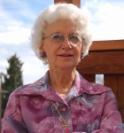 Are you looking for some funds to supplement your retirement? Do you need to modify your home to meet your needs? Are you looking for a way to pay for the home health care you need? Do you have a mortgage and find making the payments is a struggle? Or maybe you want to continue making your trip south during the winter but funds are short to do so.
Are you looking for some funds to supplement your retirement? Do you need to modify your home to meet your needs? Are you looking for a way to pay for the home health care you need? Do you have a mortgage and find making the payments is a struggle? Or maybe you want to continue making your trip south during the winter but funds are short to do so.
A reverse mortgage may be your answer. A reverse mortgage is a home equity loan with special terms for senior homeowners 62 and older. Similar to a conventional loan, you own the home and are responsible for taxes, insurance, and the maintenance. The difference, and the benefit to seniors, is there is no income or credit score qualifications and no monthly payments required. It also offers more flexibility on how you can receive the funds including monthly payments, line of credit, lump sum or a combination of these versus a lump sum with a conventional mortgage.
An additional benefit is funds left in the line of credit grow so more funds become available over time. The loan becomes due and payable when the home is no longer the primary residence of the borrowers or on their 150th birthday. Another difference and benefit of the reverse mortgage is that the reverse mortgages are non-recourse loans. This means there is no personal liability if the loan balance is higher than what the home can be sold for and the borrower or their estate are not maintaining ownership.
There are no limitations on how you spend the funds. Look at how the reverse mortgage benefited some seniors:
- Eliminate Mortgage Payments, Home Upgrades and Line of Credit: Dee and Peter did a reverse mortgage to eliminate their current mortgage payment, take a lump sum for some home upgrades, receive an extra $300 a month in monthly payments to supplement their Social Security, and still have funds in a line of credit for future use.
- Maintain Lifestyle: Helen and Harold did a Reverse Mortgage to afford to take their annual trip to Florida during the winter months. They are thankful they are able to maintain their lifestyle.
- Not Rely on Children: Nancy had accrued some debt including some credit cards and borrowing from her children. She did a Reverse Mortgage to pay off those debts and to have a line of credit available for future needs. She also enjoyed having some extra cash to purchase some things to fix up her home and to go to lunch with friends on occasion. Because her children had their own expenses and needs, they were relieved that their mother had done the Reverse Mortgage and could live more comfortably without relying on them.

- Protect Other Investments: To have extra spending money without having to cash out their CDs or other investments, Jerry and Carol decided to do a Reverse Mortgage. Providing them more freedom and control of their life during retirement.
- Purchase a New Home: Marilyn wanted to purchase a new home so she used the Reverse Mortgage rather than a conventional mortgage to finance her new home. This meant she didn’t have mortgage payments to make and provides her a better cash flow during her retirement years.
- For more ideas on how seniors used their reverse mortgage funds visit “Meet Our Borrowers” and “Uses of Proceeds” on our Reverse Mortgages SIDAC website.
As with any mortgage loan there are closing costs. The costs of the reverse mortgage are comparable to a conventional mortgage. They include the origination fee, appraisal, title settlement and recording fees. With the FHA HECM (Home Equity Conversion Mortgage) reverse mortgage HUD regulates the fees and requires that only the actual cost may be charged to the borrower, they do not allow mark ups such as processing fees. As a FHA loan the fees include the FHA Mortgage Insurance Premium – this would be the same if they are doing a conventional FHA loan. When comparing costs side by side to a conventional loan the difference is the up-front FHA Mortgage Insurance Premium. The benefits of FHA insuring the loan include guaranteed funds, a lower interest and the loan being non-recourse as well as regulating the fees. “Reverse Mortgage Closing Costs – High or Mythical” provides a side-by-side comparison.
When considering whether to do a conventional mortgage or a reverse mortgage you must consider if you can even qualify for a conventional mortgage; then if you can make the payments over time. For example, what happens if “life happens,” could you continue making those payments? Would you be stressed trying to pay living expenses, medical bills, or would you be facing foreclosure? These articles can assist you in reviewing what to do: “A Reverse Mortgage Or A Conventional Mortgage? That Is The Question.“or “Is Waiting To Do A Reverse Mortgage The Best Decision?”
When you decide to do a reverse mortgage make sure you work with an originator or loan officer who is FHA licensed, specializes in Reverse Mortgages, has years of experience and knowledge in reverse mortgages in your state, meets the state licensing requirements (for example in MN mortgage brokers need to be individually licensed – even if they are calling you from another state), and are willing to meet with you to review the details, before the application, during the application and at closing. I would caution about working with a lender from another state who is mailing all the documentation, including the application and not “meeting” with you to explain and review what you are signing. Ask for references and find out if they will be there for you even after the loan has closed. If you feel pressured, call another lender. You can find a list of questions to ask an originator at our webite: www.RMSIDAC.com, “Why Choose SIDAC,” “What To Consider When Talking To Lenders.” Or my blog article, “Don’t Let Fear Keep You From a Reverse Mortgage But Know What To Look For In A Lender.”
To ensure that borrowers understand reverse mortgages HUD requires anyone doing a reverse mortgage to complete counseling through a third-party. They will review the program and discuss other options that may be available.
Will the reverse mortgage be the answer to your financial retirement needs? Explore the option, get the facts, know what to look for in a lender, you might find it will benefit you as it has benefited hundreds of thousands of other seniors.
© 2010 Beth Paterson, Beth’s Reverse Mortgage Blog, 651-762-9648
This material may be re-posted provided it is re-posted in its entirety without modifications and includes the contact information, copyright information and the following link: http://wp.me/p4EUZQ-gG
Additional related articles:
- Finance Retirement with A Reverse Mortgage
- Know A Senior Who Wants Security, Independence, Dignity, and Control? A Reverse Mortgage May Be The Answer!
- Reverse Mortgages Answer Prayers
- Reverse Mortgages Help Celebrate Independence
- Reverse Mortgages Finance Home Car
Blog posts’ information is current as of date post published, program is subject to change in in the future. Contact us for current information, 651-762-9648.
This site or the information provided is not from, or approved by, HUD, FHA, or any US Government or Agency.



















